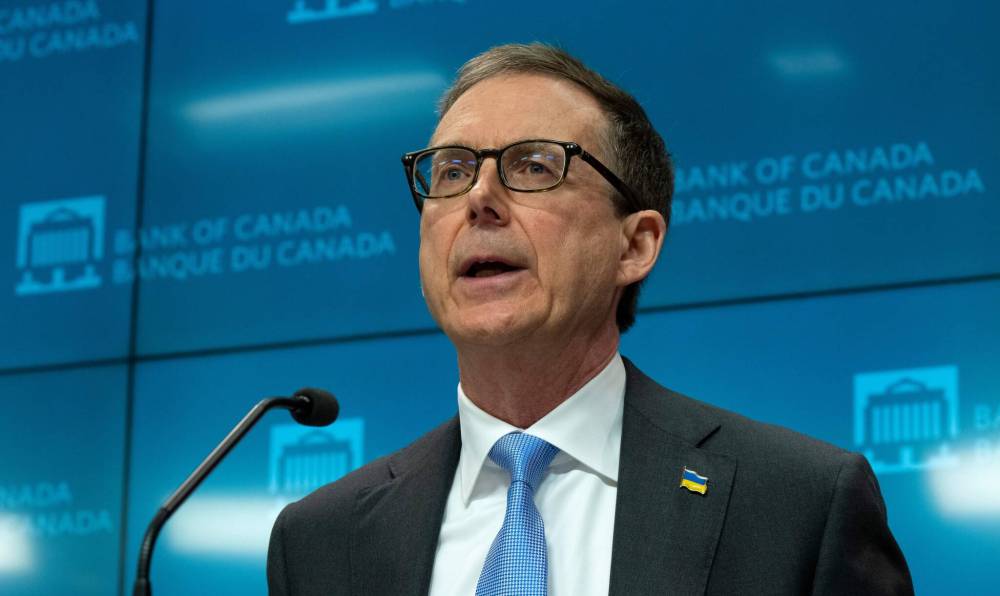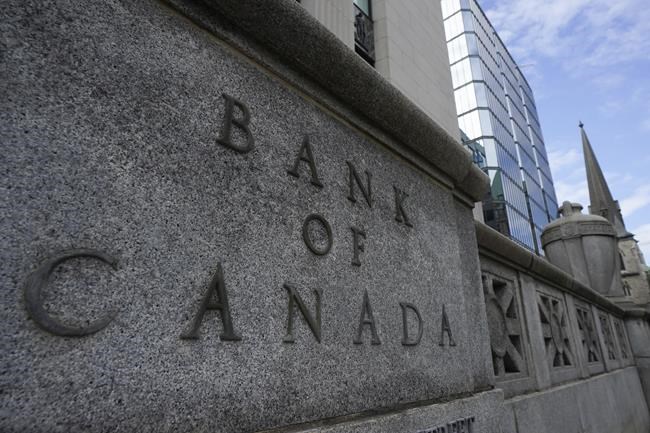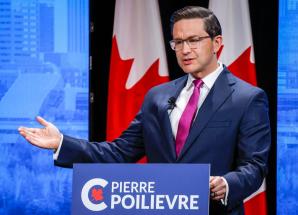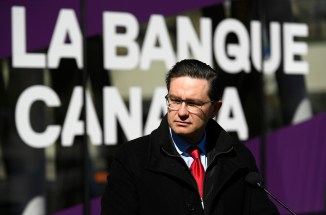Poilievre could pay price for Bank of Canada stunt
Read this article for free:
or
Already have an account? Log in here »
To continue reading, please subscribe:
Monthly Digital Subscription
$0 for the first 4 weeks*
- Enjoy unlimited reading on winnipegfreepress.com
- Read the E-Edition, our digital replica newspaper
- Access News Break, our award-winning app
- Play interactive puzzles
*No charge for 4 weeks then price increases to the regular rate of $19.00 plus GST every four weeks. Offer available to new and qualified returning subscribers only. Cancel any time.
Monthly Digital Subscription
$4.75/week*
- Enjoy unlimited reading on winnipegfreepress.com
- Read the E-Edition, our digital replica newspaper
- Access News Break, our award-winning app
- Play interactive puzzles
*Billed as $19 plus GST every four weeks. Cancel any time.
To continue reading, please subscribe:
Add Free Press access to your Brandon Sun subscription for only an additional
$1 for the first 4 weeks*
*Your next subscription payment will increase by $1.00 and you will be charged $16.99 plus GST for four weeks. After four weeks, your payment will increase to $23.99 plus GST every four weeks.
Read unlimited articles for free today:
or
Already have an account? Log in here »
Hey there, time traveller!
This article was published 13/05/2022 (1305 days ago), so information in it may no longer be current.
The more Pierre Poilievre talks about Bitcoin, the Bank of Canada and digital currencies, the deeper he digs himself into a political hole.
The Conservative Party of Canada leadership candidate vowed this week to fire Bank of Canada governor Tiff Macklem, claiming wrongly that the central bank is responsible for high inflation because it allowed itself to become “the ATM machine for government.” Never mind that leading economists worldwide dispute Poilievre’s claim that central banks are the chief cause of today’s rising prices, his latest political stunt (which had an air of desperation around it) continues to show how unfit he is for office.

Poilievre was under attack on a number of fronts from fellow candidates during the party’s first official leaders’ debate in Edmonton Wednesday, including his suggestion earlier this year that people could buy Bitcoin to “opt out of inflation.” Several candidates blasted the Ottawa-area MP for suggesting Canadians should purchase the (not-so-popular-these-days) cryptocurrency to hedge against inflation. Bitcoin’s value has been falling like a rock in recent weeks.
“This is lunacy — it doesn’t make sense at all,” former Quebec premier Jean Charest, widely believed to be Poilievre’s chief rival in the race, said during the debate.
“Magic internet money fluctuates vastly,” candidate Patrick Brown piled on.
Vying for the anti-establishment vote, which Poilievre has been seeking since the beginning of the leadership contest, comes with risks: the more he tries to pass off half-baked populist ideas as real government policy, the less credible he becomes. Vowing to fire a Bank of Canada governor and urging people to buy Bitcoin is clown-like behaviour, not fitting for a future prime minister.

Poilievre tried to walk back his Bitcoin comments Wednesday, claiming what he really said is Canadians should have the choice to buy cryptocurrency.
“I don’t want to be like communist China and ban Bitcoin or other technologies because in a free market people should have the opportunity to make those decisions for themselves,” he said.
Nobody is proposing to ban Bitcoin or any other cryptocurrency in Canada. Poilievre made that up so he has something to attack. It’s the kind of shadow boxing he’s been engaged in since the beginning of the campaign: fabricate something that doesn’t exist (Canadians have lost control of their lives) and offer a fake solution to solve it (elect me as prime minister and I’ll give you back control of your life).
It’s precisely the kind of false narrative he’s pushing around the idea of a Bank of Canada digital currency, which Poilievre says would cause people to lose control over their money because government could use it to spy on them.

He says a central bank digital currency would give government “massive new powers for surveillance, control and censorship.” Sounds Orwellian. “That’s why I would ban a central bank digital currency and give people back control of their money from bankers and politicians,” he said.
It’s textbook Trumpian.
The Bank of Canada is not proposing to establish a digital currency. Like many central banks around the world, it’s looking into the possibility that one day people may have the option of holding digital currency with the central bank directly. It would be denominated in Canadian dollars and wouldn’t be forced on anyone.
Most people already use digital currency in the form of bank cards, credit cards, e-transfers and online payments such as Paypal. The only difference between those and what the Bank of Canada is evaluating is the latter would be an account held directly with the central bank, as opposed to a private sector institution. Even if the Bank of Canada did provide Canadians with the option of a digital currency (for those unable or unwilling to make transactions through traditional banking in an increasingly paperless society), people would still be able to use existing modes of payment. No one would be forced to open an account with the Bank of Canada. Poilievre’s Orwellian scenario is pure fantasy.
This was not a good week for Poilievre. He did not exude prime ministerial qualities on the debate stage. His loud, in-your-face anti-establishment messaging is wearing thin. Calling for the head of the Bank of Canada may have been a turning point in his campaign.
tom.brodbeck@freepress.mb.ca

Tom has been covering Manitoba politics since the early 1990s and joined the Winnipeg Free Press news team in 2019.
Our newsroom depends on a growing audience of readers to power our journalism. If you are not a paid reader, please consider becoming a subscriber.
Our newsroom depends on its audience of readers to power our journalism. Thank you for your support.










